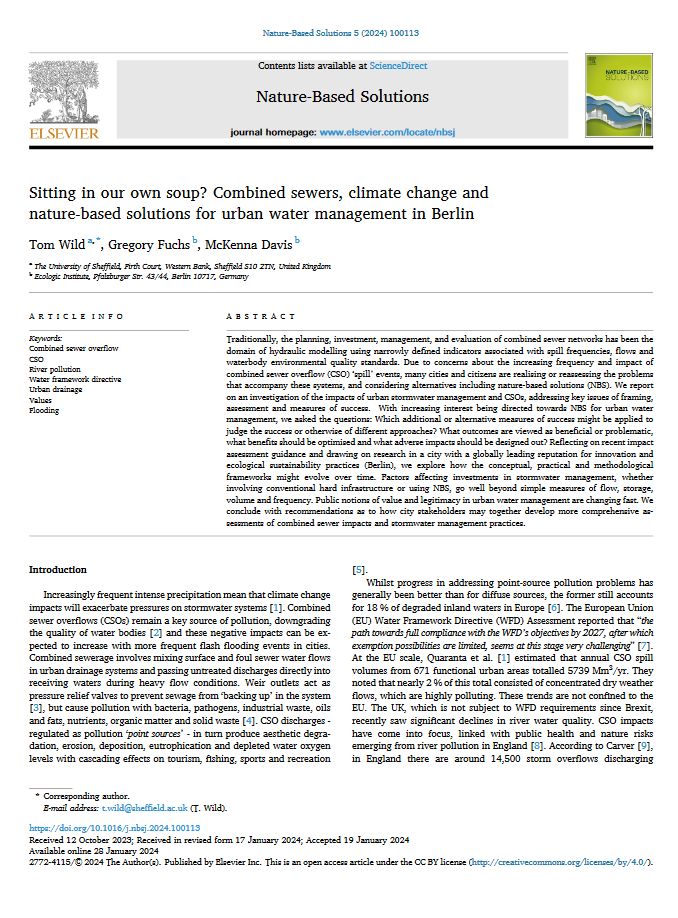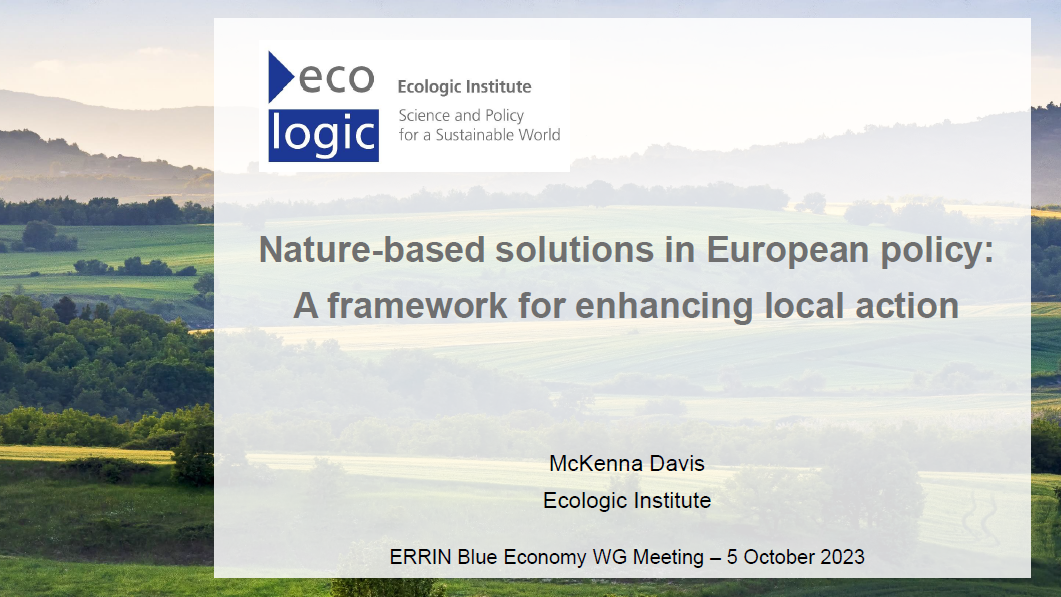What Makes Nbs Work? Governance Approaches to Tackle Combined Sewer Overflows in Urban Water Systems
- Publication
- Citation
Meyenberg, Ida & Elkina, Evgeniya 2025: What Makes Nature-Based Solutions Work? Governance Approaches for Managing Combined Sewer Overflows (Policy Brief, NICHES Project). Ecologic Institute.
In this policy brief, Ida Meyenberg and Evgeniya Elkina analyze which governance approaches enable the successful implementation of nature-based solutions (NBS) for managing combined sewer overflows (CSO) in cities. The central question is what institutional, procedural, and financial enabling conditions municipalities and water authorities need to integrate NBS effectively into urban stormwater management strategies. The Ecologic Institute was project lead in the NICHES project and chiefly responsible for the governance and best-practice analysis in five European and North American cities, deriving from it practice-oriented recommendations.
Governance Models for Urban NBS
The policy brief builds up on Deliverable 4.2 from the NICHES project "Policy Gaps and Opportunities for the management of urban water SETS" (Meyenberg, Elkina 2025). In that, the authors compare governance structures in Rotterdam, Barcelona, Berlin, Sheffield, and Boston based on expert interviews and literature research. Using the STEER Diagnostic Water Governance Tool for the analysis, the authors identify three core dimensions: processes (coordination and implementation), governance framework (regulations and responsibilities), and context (socio-economic conditions). Cities with successful stormwater management are characterized by clear master plans (e.g., Berlin's Water Resources Act), strong citizen participation, aligned regulatory landscapes, and innovative tools such as the Dutch 'Environmental desk' that consolidate planning requirements.
Stakeholder Participation and Cross-Sector Collaboration
A key enabling element is citizen participation: Barcelona often successfully involves local actors in the development of policies, such as the PLARHAB plan; Boston mobilizes residents directly through campaigns such as "Cut the Crap"; and Berlin initiatives like the "Wassertanke" strengthen neighborhood networks. At the same time, inter-departmental task forces (e.g., in Berlin and Barcelona) ensure seamless cross-sector cooperation among environmental, urban planning, and mobility authorities.
Innovative Financing and Incentive Mechanisms
Beyond traditional funding streams, the authors recommend establishing dedicated NBS financing channels through public-private partnerships. Boston uses compliance-based permits and subsidies, while Rotterdam relies on a digital funding desk that links applications and regulations. Such mechanisms secure long-term resources and reduce administrative barriers.
Policy Implications and Recommendations
Finally, Meyenberg and Elkina derive concrete recommendations:
- Strengthen Vertical Coordination: Adopt supra-municipal alliances such as Rotterdam’s Waterkracht Alliantie as a blueprint.
- Institutionalize Participation Processes: Standardize early-stage consultations.
- Expand Data and Knowledge Exchange: Develop interactive platforms for monitoring and evaluation.
- Create Integrated Financing Frameworks: Establish funds for the planning, construction, and maintenance of NBS.
With these approaches, municipalities can implement CSO solutions resource-efficiently, making urban water systems more resilient towards climate change and ecologically valuable.







